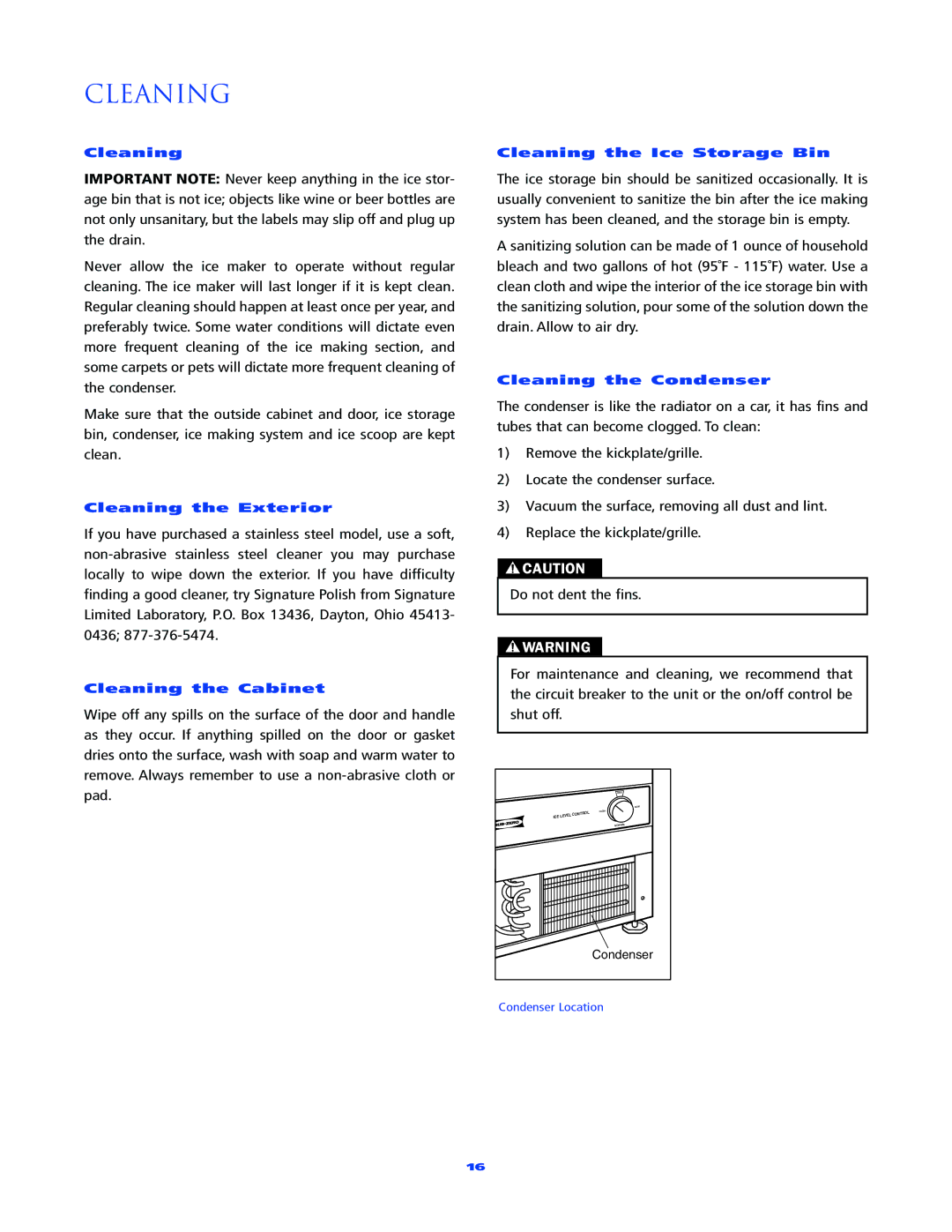
CLEANING
Cleaning
IMPORTANT NOTE: Never keep anything in the ice stor- age bin that is not ice; objects like wine or beer bottles are not only unsanitary, but the labels may slip off and plug up the drain.
Never allow the ice maker to operate without regular cleaning. The ice maker will last longer if it is kept clean. Regular cleaning should happen at least once per year, and preferably twice. Some water conditions will dictate even more frequent cleaning of the ice making section, and some carpets or pets will dictate more frequent cleaning of the condenser.
Make sure that the outside cabinet and door, ice storage bin, condenser, ice making system and ice scoop are kept clean.
Cleaning the Exterior
If you have purchased a stainless steel model, use a soft,
Cleaning the Cabinet
Wipe off any spills on the surface of the door and handle as they occur. If anything spilled on the door or gasket dries onto the surface, wash with soap and warm water to remove. Always remember to use a
Cleaning the Ice Storage Bin
The ice storage bin should be sanitized occasionally. It is usually convenient to sanitize the bin after the ice making system has been cleaned, and the storage bin is empty.
A sanitizing solution can be made of 1 ounce of household bleach and two gallons of hot (95˚F - 115˚F) water. Use a clean cloth and wipe the interior of the ice storage bin with the sanitizing solution, pour some of the solution down the drain. Allow to air dry.
Cleaning the Condenser
The condenser is like the radiator on a car, it has fins and tubes that can become clogged. To clean:
1)Remove the kickplate/grille.
2)Locate the condenser surface.
3)Vacuum the surface, removing all dust and lint.
4)Replace the kickplate/grille.
![]() CAUTION
CAUTION
Do not dent the fins.
![]() WARNING
WARNING
For maintenance and cleaning, we recommend that the circuit breaker to the unit or the on/off control be shut off.
| OFF |
| LOW |
| HIGH |
ICE LEVEL | CONTROL |
| |
| NORMAL |
| Condenser |
Condenser Location
16
